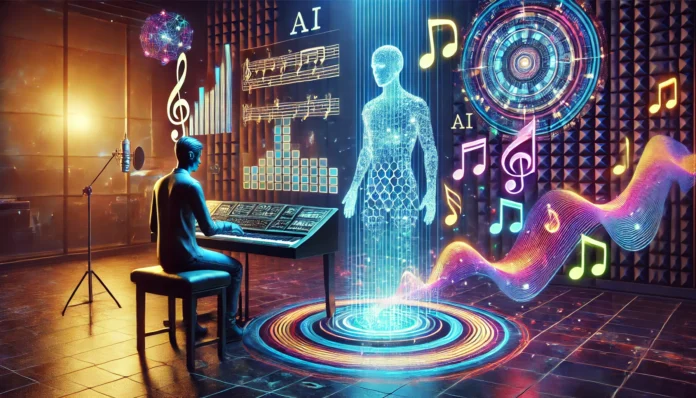Music has always been a profound expression of human creativity, emotion, and culture. In recent years, Artificial Intelligence (AI) has entered this creative domain, transforming how music is composed, performed, and experienced. Far from replacing human artistry, AI is becoming a collaborative partner, enhancing musical possibilities and challenging traditional boundaries. This synergy between humans and algorithms is redefining the future of music in once unimaginable ways.
AI as a Creative Partner
AI in music is not about creating compositions independently; it is about augmenting human creativity. Algorithms analyze vast datasets of musical patterns, genres, and structures to generate suggestions, harmonies, and even complete pieces.
1. Tools Enabling Collaboration
- AIVA (Artificial Intelligence Virtual Artist): AIVA assists composers by generating music tailored to specific moods or themes, often used in soundtracks and advertisements.
- Amper Music: A user-friendly tool that allows creators to produce custom tracks by selecting styles, tempos, and moods, empowering non-musicians to create professional-grade music.
2. Breaking Genre Boundaries
AI enables musicians to explore cross-genre creations by blending elements from various styles. For example, AI tools can merge classical music structures with electronic beats, creating unique soundscapes.
AI in Music Composition
AI’s role extends beyond collaboration to inspire and innovate in composition:
1. Improvisation Assistance
AI systems like MuseNet by OpenAI analyze musical structures and styles, offering improvisational ideas to artists in real-time, fostering experimentation.
2. Restoring and Completing Works
AI has been instrumental in restoring or completing unfinished compositions by legendary artists. For instance, AI completed Beethoven’s 10th Symphony, providing a glimpse into what might have been.
Enhancing Live Performances with AI
AI is revolutionizing live performances by creating interactive and immersive experiences:
- Real-Time Adaptation: AI-driven systems adjust background music or lighting based on audience reactions, enhancing engagement.
- AI-Musician Collaborations: Artists like Holly Herndon use AI as a virtual band member, generating harmonies and effects during performances.
Challenges and Controversies
While AI offers immense potential in music, it also raises challenges and concerns:
1. Authenticity in Music
Critics argue that AI-generated music lacks the emotional depth and personal touch of human compositions. Can music created by algorithms truly resonate with human experiences?
2. Intellectual Property Issues
When AI contributes to a composition, questions arise about authorship and copyright. Who owns the rights to music generated through AI collaboration?
3. Cultural Impacts
AI’s reliance on historical datasets may inadvertently reinforce stereotypes or cultural biases, limiting diversity in musical creation.
A Harmonious Future
AI is not here to replace musicians but to amplify their creativity. By automating repetitive tasks, suggesting new ideas, and breaking traditional barriers, AI is democratizing music creation and enabling more people to express themselves musically.
As this partnership evolves, the future of music lies in finding a harmonious balance where human artistry and algorithmic innovation coexist, creating melodies that are both timeless and transformative.





